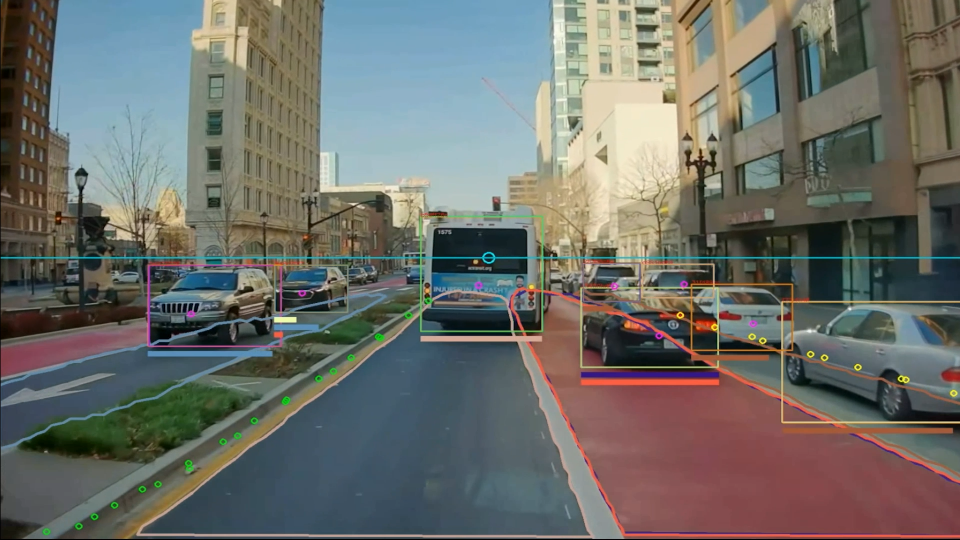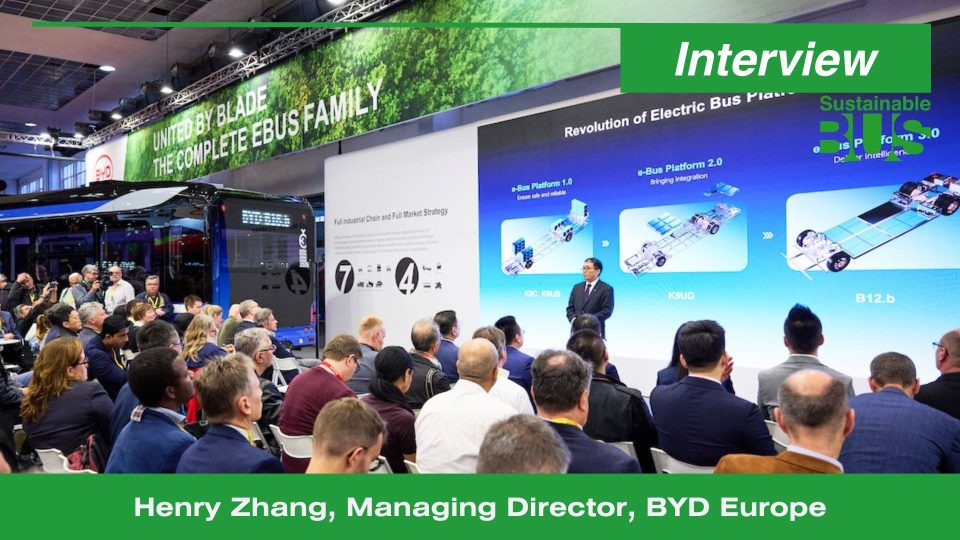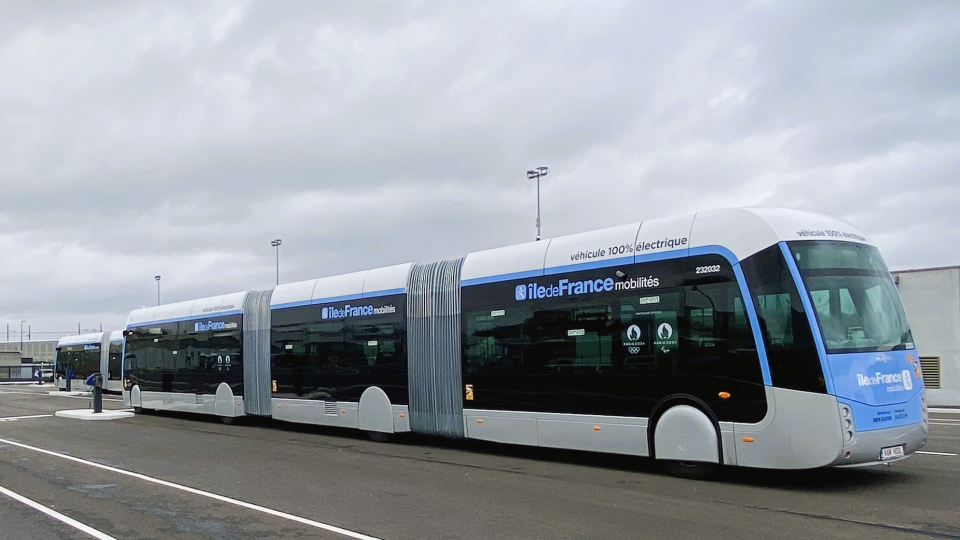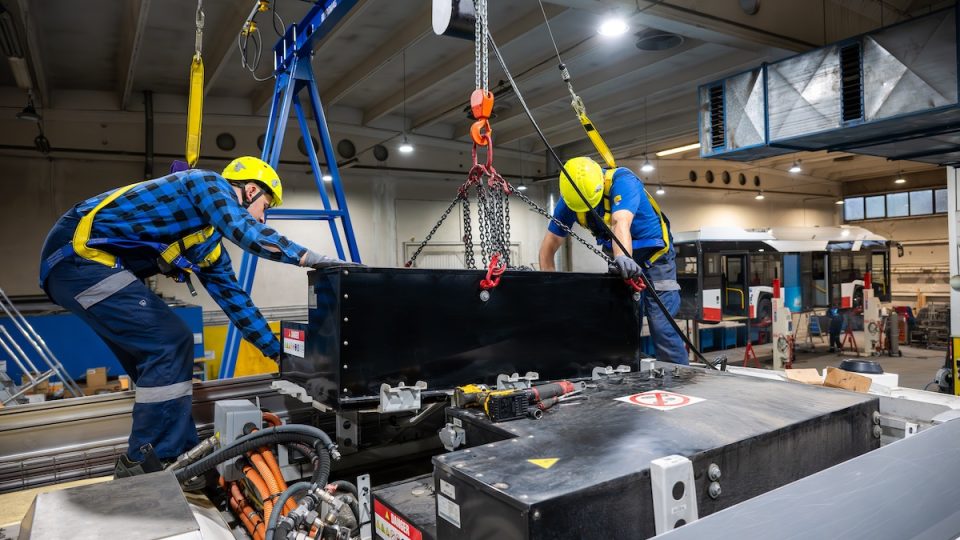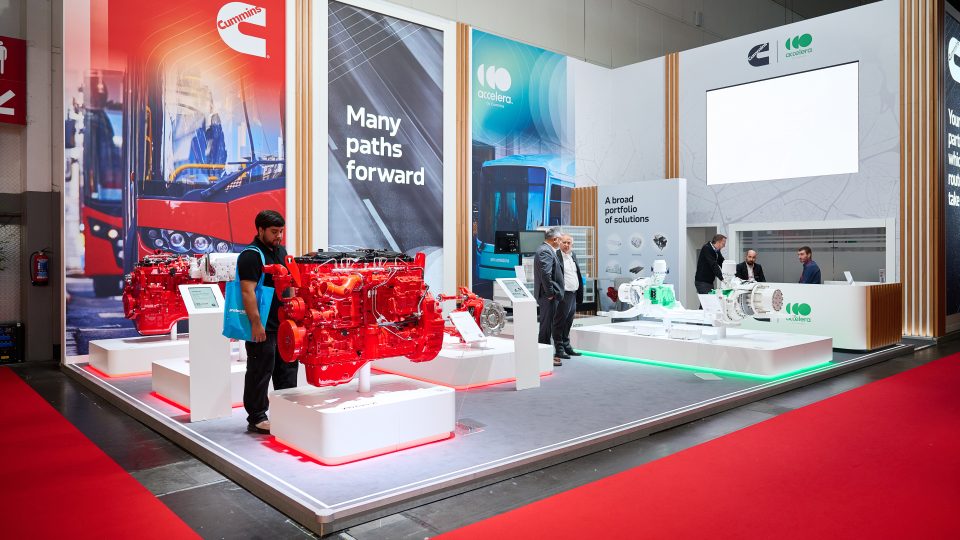Sono Motors powers a solar bus trailer in Munich
Thanks to Sono Motors, in cooperation with Münchner Verkehrsgesellschaft (MVG), a solar bus trailer will be running on the streets of Munich, testing the energy yields and potential of the technology in daily operation. This will offer possible savings of up to 2,500 liters of diesel per year and an annual local CO2 savings potential […]
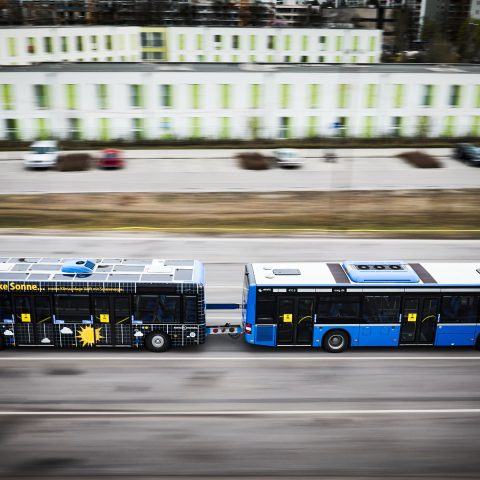
Thanks to Sono Motors, in cooperation with Münchner Verkehrsgesellschaft (MVG), a solar bus trailer will be running on the streets of Munich, testing the energy yields and potential of the technology in daily operation. This will offer possible savings of up to 2,500 liters of diesel per year and an annual local CO2 savings potential of more than 6.5 metric tons per bus.
The twenty specialty semi-flexible photovoltaic modules provide more than 2,000 watts to power the vehicle’s battery and electrical loads such as heating, ventilation and air conditioning, as well as the trailer’s steering system.
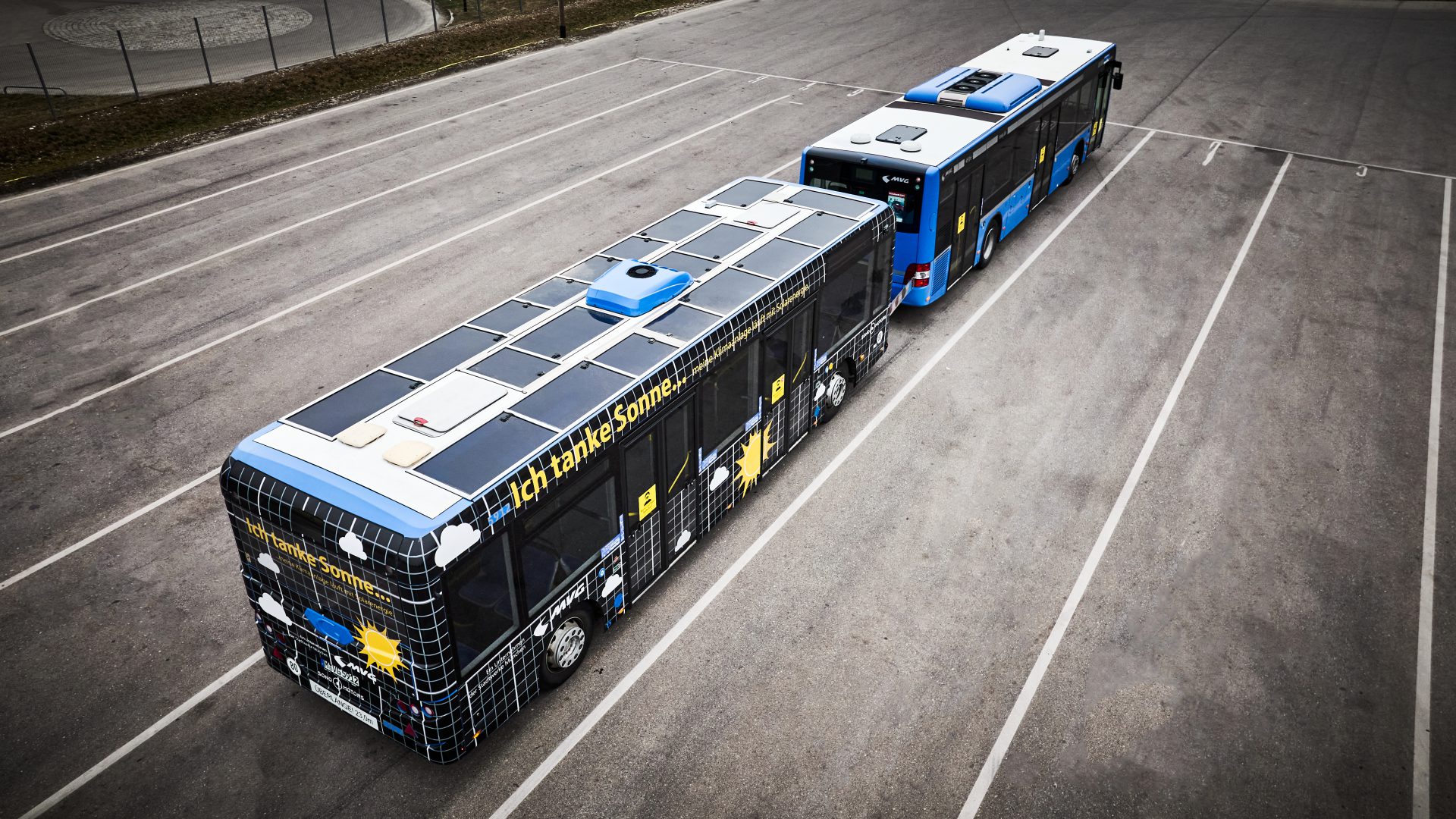
«The partnership with MVG illustrates the enormous potential of our unique solar technology, which is now being used for the first time in the company’s history on public transport. This is a milestone in Sono Motors’ mission to make every vehicle solar. Especially in times of rising energy prices and increasing urban area emission regulations, our solar technology offers great added value for public transport operators. City buses and coaches, whether electric or diesel-powered, offer a lot of space and are out on the road every day. The first solar bus trailer for MVG will hit the streets of Munich in the future and allow MVG passengers to experience solar mobility in daily use», says Laurin Hahn, Sono Motors co-founder and CEO.
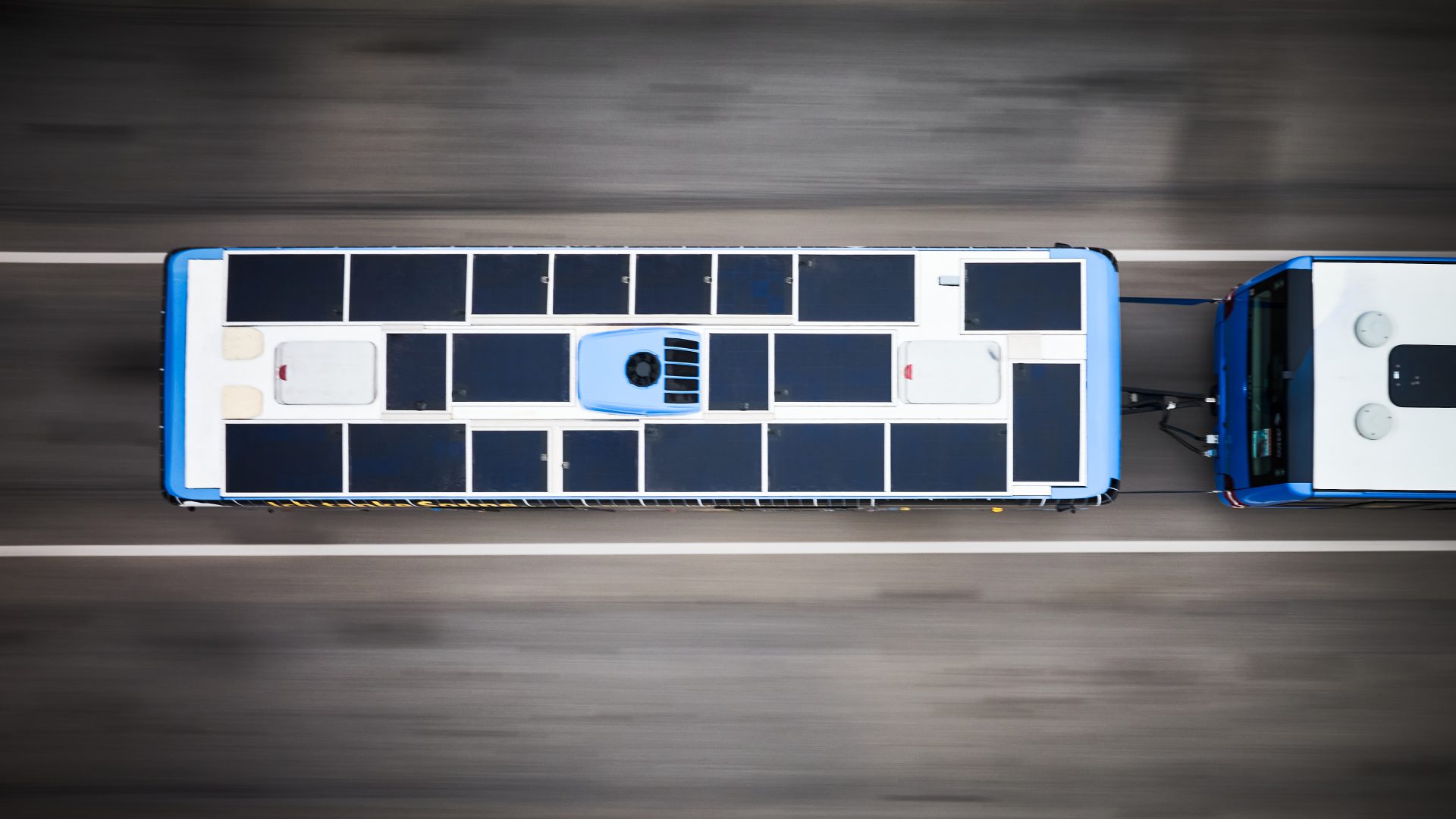
High CO2 saving potential thanks to powerful solar technology
The CO2 saving potential of solar-powered vehicles and their contribution to urban air pollution control and climate protections are promising. For a medium-sized fleet of around 300 buses, calculations show the possibility of savings of up to 2,000 metric tonnes of CO2 per year. Further increases are conceivable in the future, as both the solar cells and the power electronics are expected to become more efficient. This solar solution’s so-called ‘CO2 backpack’, i.e., emissions caused in production, amounts to a one-off of approximately 1.5 metric tonnes of CO2 per bus or bus trailer and could be offset after a short runtime of just less than one year.
The solar technology was developed and tested specifically for use on buses. The concept for the customized solar bus trailer was developed in collaboration with MVG to ensure maximum space utilization and efficiency. In addition to the robust solar installation, which is optimized for vehicle integration, this also includes electrical integration by means of the power electronics developed by Sono Motors (MPPT central unit), called MCU. The solar charge controller has an intelligent algorithm that optimizes the PV modules’ energy yields.
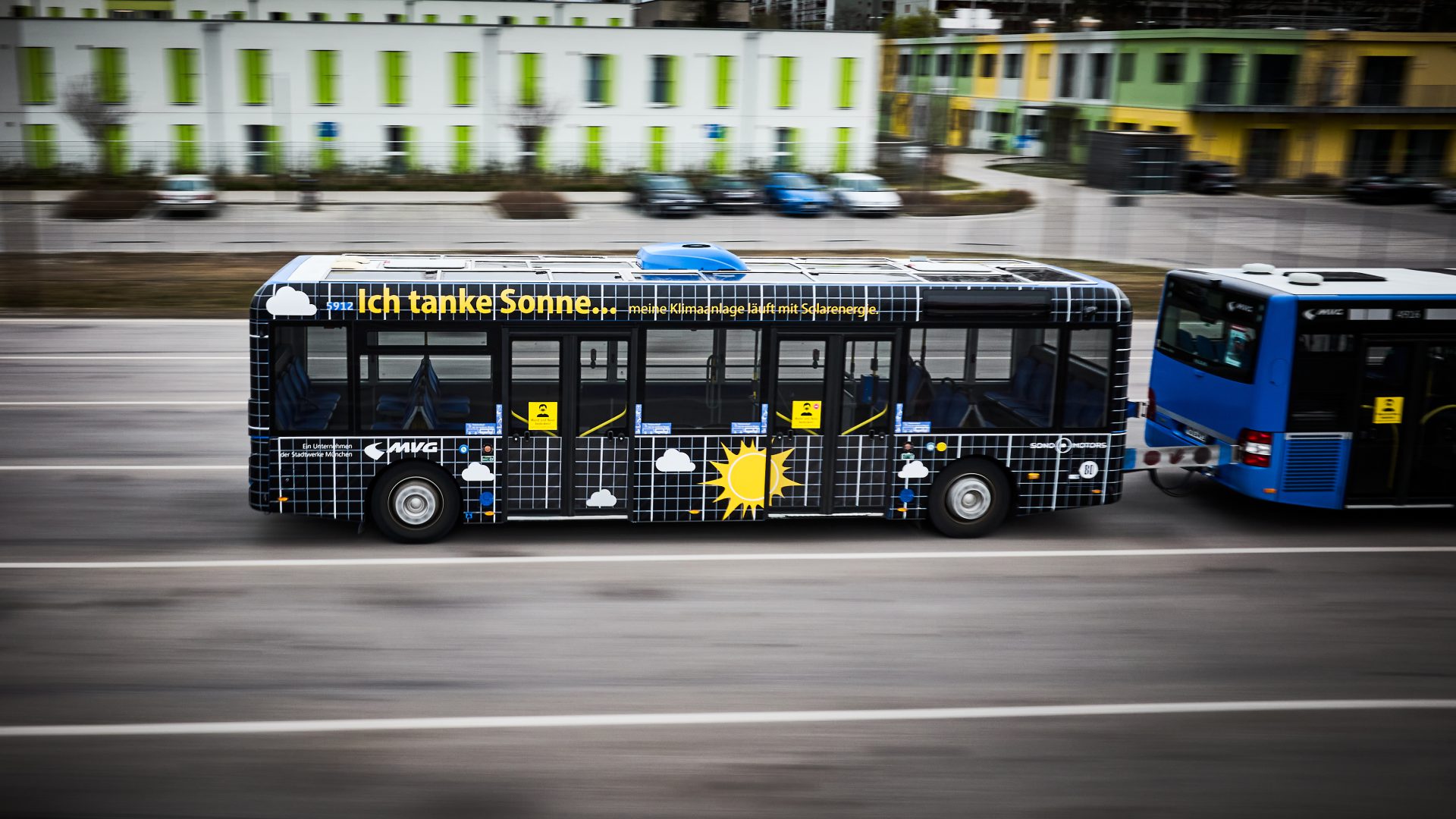
Due to the ultra-fast optimization in the millisecond range and the multi-channel system, the PV yields can be transferred to the battery of the bus in the best possible way. The modules cover a total area of twelve square meters and supply the 24 V battery with over 2,000 watts. In this case, the solar energy generated in this way is used to operate the HVAC system (heating, ventilation, air conditioning) and to support the trailer steering system. In addition to saving diesel, the additional electricity ensures the stabilization of the battery’s energy supply, thus extending its service life and reducing maintenance costs. The energy generated can be monitored online using the integrated software.
Veit Bodenschatz, Managing Director and Head of Bus Division of the MVG says that «the photovoltaic system on our bus trailer now allows us to test under real conditions how well the power generation works and whether there are perhaps routes in our network that are better suited than others for this type of power generation. The question of what energy savings can be achieved by using solar energy are, of course, particularly exciting against the background of current fuel and energy prices».

